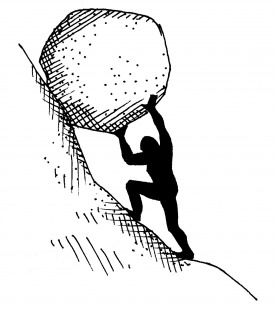Fourteen years in the making…
How to Successfully Argue Jesus Existed (or Anything Else in the World)“:
I really liked your post although I couldn’t help but smile when I read “their existence [referring to Moses and Abraham] is sufficiently doubtful we can’t affirm they did exist with any honest confidence”.
Certainly, as the consensus of a historical Abraham has already swung from “probable” to “extremely improbable”, one must be very confident… or very foolish to dare suggesting we should swing back to “extremely probable”!
Without the notion of “paradigm shift” that Robert Tulip brings up in his comments, the claim of a historical Abraham would certainly not be admissible. However, when one abandons the premise of a divine covenant to embrace that of an earthly covenant, a real paradigm shift occurs, which invites us to reconsider all known facts from scratch. This exercise has allowed me to gather sufficient evidence to now feel comfortable making such a claim.
I sincerely believe I have applied the twelve steps to the best of my abilities. I have spent most of the last fifteen years trying to prove myself wrong and this falsification process was instrumental in developing my argumentation because I now believe that very few stones were left unturned. This said, a peer review is still in order.
Unfortunately, I have found it extremely challenging to get scholars to consider this alternative paradigm. Many are quick to reject this idea because it deviates from their beliefs and comfort zone. I wouldn’t mind if they disagreed with me, or identified flaws in my work, but until now, they have refused to even look at the evidence and it appears there is nothing I can do or say that will change their mind.
And while scientists accept and expect that premises and hypothesis should and must be challenged, Max Planck duly noted the amazing resistance the same people can oppose to any paradigm shift. The example of Galileo is obvious. His arguments weren’t flawed, but his contemporaries kept rejecting the proposed paradigm instead of reconsidering the facts. At a time when fake news and conspiracy theories keep muddying the waters, I can understand why scholars are leery to consider my work. But given the above, how can our collective knowledge improve if diverging opinions cannot be properly confronted and argued?
All that to say that if I wasn’t convinced that The Covenant contained information that has the potential to help transform the world, I would have given up a long time ago. Indeed, life’s way too short and there are many other things I would rather be doing. However, each time I revisit the evidence that I was able to accumulate over the years, I reach the same inevitable conclusion: Just like Sisyphus, I’ve got to keep pushing!
